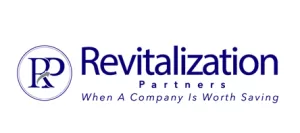 As we bid adieu to 2022, we thought we would provide our insights into some of the lessons learned from our interactions with small to medium-sized businesses throughout the year.
As we bid adieu to 2022, we thought we would provide our insights into some of the lessons learned from our interactions with small to medium-sized businesses throughout the year.
Over the course of the year, we have had exposure to businesses in many types of industries and in a wide range of revenues.
We have found that many of these businesses have had several common issues or problems and we thought it would be useful to highlight what actions could have been taken to potentially prevent those companies from getting into trouble in the first place.
GOVERNMENT PROGRAMS HELPED …
During 2022, many companies continued to have cash resources provided by governmental programs such as PPP or EIDL loans.
 The additional liquidity helped most companies cushion their operating losses until management was able to make course corrections to generate positive cash flow.
The additional liquidity helped most companies cushion their operating losses until management was able to make course corrections to generate positive cash flow.
While a number of companies were successful in making those course corrections, there were still a significant number of companies that could not right the ship. In discussions with multiple lenders and people connected with those companies, there were common themes that surfaced.
SOME COMMON THEMES SURFACED …
In many cases, management could not determine what changes were required to make the course corrections, did not apply for the government programs that were available, or did not have an adequate plan to address the decline in their cash flow.
There are many lessons that can be learned from their mistakes; however, the most important lesson is how management should proactively address operational problems as they occur.
 First of all, every business should have an annual financial plan that outlines their expectations for their business along with the assumptions that drive operations. For example, assumptions regarding revenue increases, pricing, new customer acquisition and new products should be incorporated into the plan.
First of all, every business should have an annual financial plan that outlines their expectations for their business along with the assumptions that drive operations. For example, assumptions regarding revenue increases, pricing, new customer acquisition and new products should be incorporated into the plan.
Assumptions for expenses should include manpower and staffing levels, wage increases, and as it relates to other expenses the expected rate of inflation.
Once the plan is finalized the level of anticipated profitability and cash flow can be determined and used to monitor activities during the year.
AS THE YEAR PROGRESSES …
As the year progresses, current operating performance should be compared to the financial plan to determine if the business is on track in achieving their plan goals.
 If there is a significant decline in revenue, or an increase in expense, then course corrections should be made. The financial plan can also be used to determine the amount of financing required to fund operations.
If there is a significant decline in revenue, or an increase in expense, then course corrections should be made. The financial plan can also be used to determine the amount of financing required to fund operations.
Management can use this plan to talk with their lender about options to increase their credit line, if required, or look for additional resources that may be available.
While the PPP and EIDL loan programs have ended, the Small Business Association continues to have programs that could provide help to small to medium-sized businesses.
REPORT CARD FOR THE BUSINESS …
Another common theme that we have seen frequently, is situations where companies are not able to prepare financial statements on a monthly basis.
 Monthly financial statements provide a report card for the business and give management the ability to regularly monitor performance and to take advantage of opportunities or make course corrections when the business is not achieving the planned objectives.
Monthly financial statements provide a report card for the business and give management the ability to regularly monitor performance and to take advantage of opportunities or make course corrections when the business is not achieving the planned objectives.
When monthly financial statements are not prepared on a timely basis, management does not have the tools required to react to the actual performance of the business. Lenders also typically require monthly or quarterly financial statements as well.
In most lending agreements, an event of default occurs when financial statements are not delivered when due.
While most banks will provide a grace period before declaring an event of default, if it happens consistently, lenders may be forced to take more aggressive measures to force management to provide financial statements as required.
COMPETENT STAFF REQUIRED …
Management must ensure that they have the competent accounting staff and adequate systems required to prepare monthly financial reports on a timely basis.
 When we see this type of problem occurring regularly, we often see that the finance staff lacks the level of sophistication or accounting knowledge to overcome these obstacles.
When we see this type of problem occurring regularly, we often see that the finance staff lacks the level of sophistication or accounting knowledge to overcome these obstacles.
It’s really important to assess the level of competency and expertise of a company’s financial staff.
Often small companies hire bookkeepers to manage the accounting function, and as the company grows, management fails to upgrade their accounting staff to manage the accounting function of the now more complex business.
Regularly reviewing the requirements of the business with regard to financial reporting is an important element of managing the business and proactively upgrading the accounting staff is an imperative to ensure that the financial reporting requirements of the company are achieved.
ADEQUATE SYSTEMS A MUST …
Preparing accurate financial statements also requires accounting systems that provide for the needs of the business. We often see companies that do not have adequate financial reporting systems and/or the business requirements are such that the current systems are no longer adequate to provide the reporting required to monitor all aspects of the business.
 We often see businesses using QuickBooks to manage their accounting functions. Initially, the QuickBooks system works well for small businesses that do not have complex business reporting needs or accounting issues. The problem starts when the company expands, acquires new businesses, or has multiple operating divisions.
We often see businesses using QuickBooks to manage their accounting functions. Initially, the QuickBooks system works well for small businesses that do not have complex business reporting needs or accounting issues. The problem starts when the company expands, acquires new businesses, or has multiple operating divisions.
While QuickBooks may handle basic reporting and accounting requirements, it’s difficult to modify the software to satisfy the needs of the business as it evolves.
Those companies that, do try to modify or use QuickBooks for more complex business reporting often learn that the software is not intended to be used without major modifications.
Often the end result is that management does not receive the information they need to proactively operate the business.
The important lesson here, is that management should periodically review the information reporting requirements, particularly as they plan to expand, add new product lines, or divisions.
This should be done as part of an annual planning process.
 If there are inadequacies or gaps in the current software, management should proactively determine a plan to upgrade accounting and financial reporting software in advance of the need for additional reporting requirements.
If there are inadequacies or gaps in the current software, management should proactively determine a plan to upgrade accounting and financial reporting software in advance of the need for additional reporting requirements.
While the list of lessons learned over the past year is lengthy, we wanted to highlight some of the situations we see more frequently.
In most cases, these types of problems, if not remedied in a timely manner, cause damage to the business, loss of shareholder value and in some cases, cause the business to fail.
Being proactive will help mitigate the damage. And, if businesses find themselves in this type of situation, don’t be afraid to ask for help.
Revitalization Partners specializes in improving the operational and financial results of companies and providing hands-on expertise in virtually every circumstance, with a focus on small and mid-market organizations. Whether your requirement is Interim Management, a Business Assessment, Revitalization and Reengineering, a State Receivership or Bankruptcy Support, we focus on giving you the best resolution in the fastest time with the highest possible return.


